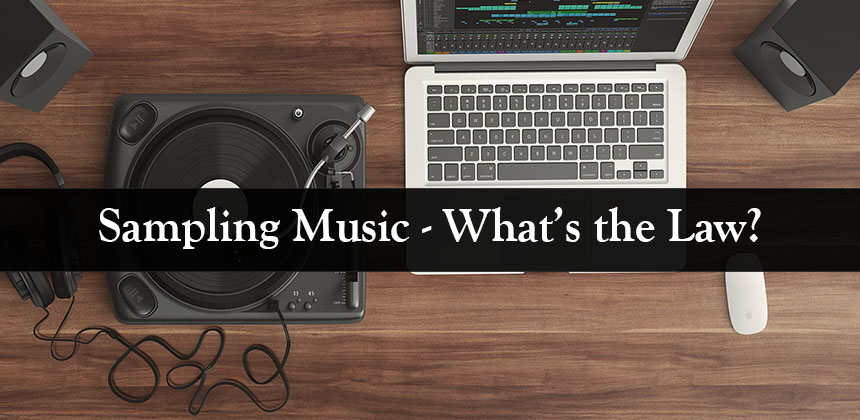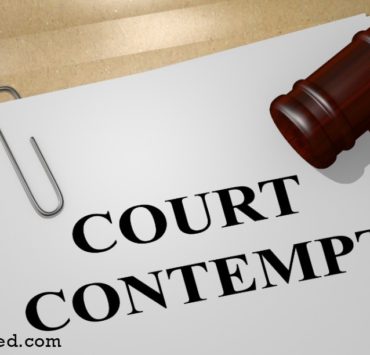Music Covers And Sampling: What You Need To Know

Author: Moses Agegenu
What is a Music Cover?
A “cover” is a new performance of a previously recorded song by a person other than the original artist with the lyrics and basic melody left intact.
Once an artist releases a song, anyone can create and distribute their sound recording of the work (i.e., release a ‘cover’) as long they secure a mechanical license and pay the musical work owner a ‘mechanical royalty.’
How can an artist legally cover a song?
As earlier mentioned above, there are processes to be followed if an artist must cover a song. First, a mechanical license is an agreement between a music user and the owner of a copyrighted composition (song), that grants permission to release the song in an audio-only format (interactive audio streams, digital downloads, CDs, vinyl). This permission is also called mechanical rights, you must secure a mechanical license and also pay the musical work owner a mechanical royalty.
In some situations, an artist might need just more than a mechanical license to cover a song if the artist intends to post videos on YouTube. In this case, all you need is a synchronization license to avoid copyright infringement issues that can spring up from uploading the sample on YouTube.
In getting a synchronization license, you talk to the publisher, which may or may not cost you a dime, try your luck.
A synchronization license, although similar to a mechanical license, is different in the sense that (A sync license, is a music license granted by the owner or composer of a particular piece of work. The license allows the licensee or purchaser, the right to use the music in a visual piece, such as a movie, video game, or commercial).
Can you perform a cover live?
If you have a sizeable number of people at your show and you don’t intend to record or distribute the performance at that show, you might just be lucky to get away with it. However, this does not give the right to perform cover songs without following due process (reaching out to the owners, publishers, and the proper performing rights organization).
What is Sampling in Music?
According to Wikipedia, sampling is the reuse of a portion (or sample) of a sound recording in another recording. Sampling is a foundation of hip hop music, which emerged with 1980s producers sampling funk and soul records, particularly drum breaks.
Many music fans would not have the privilege of knowing about certain classical sounds if our favorite modern artists didn’t sample them in their songs. It is essential to state that sampling does not make anyone a lousy artist; neither does it mean they are lazy or not talented.
Though music sampling is common in Nigeria, there has not been a single report of a successful sampling or related copyright suit in Nigeria. This brings up questions as to the awareness of copyright infringement by artists. Do they know about copyright protection? Are these many samples successfully cleared? Is it possible that the Nigerian legal system is dissuading a few from seeking legal remedy? Is it easier to call out defaulting artists on radio and social media?
The rule regarding the use of samples has always been: “get cleared or get sued.” If any artist must sample songs from other artists, they must seek permission from the proper owners, and this process is called clearance. The process can be complex and pocket draining. This is because there are two sets of rights in a song – a composition (lyrics, melody) and sound recording (the audio recording).
Generally, sound recording copyrights are owned by recording artists and their record labels, while songwriters and publishers own compositions.
Therefore, an artist who intends to clear might need to obtain two licenses: one license for the usage of the master recording and one license for the use of the underlying composition.
Section 15 of the Copyright Act provides that copyright infringement occurs when a person does anything controlled by copyright without the license or authorization of the owner. Under Section 16, the owner, assignee, or exclusive licensee of a copyright can sue for copyright infringement in the Federal High Court. Criminal liability is also attributed to trade-in infringing copies.
Some artists believe that you don’t need to get cleared before using a part of a musical recording; that’s untrue. No matter how minute the sample is, you must get cleared. The essence of suing a person who samples a song without obtaining a license from the rights owner is to claim damages on profit made from the song’s sales. In a situation where no profit is derived from the song, the Court may award little or no damages, so it may amount to a waste of time and effort on the part of the copyright owner.
In recent times, we have had cases of social media callouts for copyright infringement between artists, one of the most recent one which appears to have been settled out of Court between Danny Young and the African bad gyal Tiwa Savage. Danny Young filed a N205,000,000.00 (Two Hundred and Five Million Naira) copyright suit against Tiwa Savage over her song titled “one”. It was reported that Tiwa Savage and her label reached out to Danny Young to settle and reach an agreement.
It is evident that sampling has become a big part of the Nigerian music industry; the up and coming alongside the big wigs in the industry, do it. If the artist involved is cleared to do it, having obtained the required permissions, all is good, and if the reverse is the case, then wahala go dey!
Lastly, I want you to know that you will not need permission if you create and publish your sound recording and musical composition. Still, if you must exploit other people’s work commercially, then you must get their approval. There are shortcuts to it and getting permission is the only way to avoid getting sued.
Get Cleared or Get Sued!
References
David B.S. Sampling in the Nigerian Music Industry https://medium.com/urban-central/sampling-in-the-nigerian-music-industry-29153fda6772
Ayomide O. Tayo Pulse Opinion: Herein lies the true art of sampling Fela Kuti 15th January 2019 https://www.pulse.ng/entertainment/music/the-true-art-of-sampling-fela-kuti/cg8wx9e
Lawyard is a legal media and services platform that provides enlightenment and access to legal services to members of the public (individuals and businesses) while also availing lawyers of needed information on new trends and resources in various areas of legal practice.














